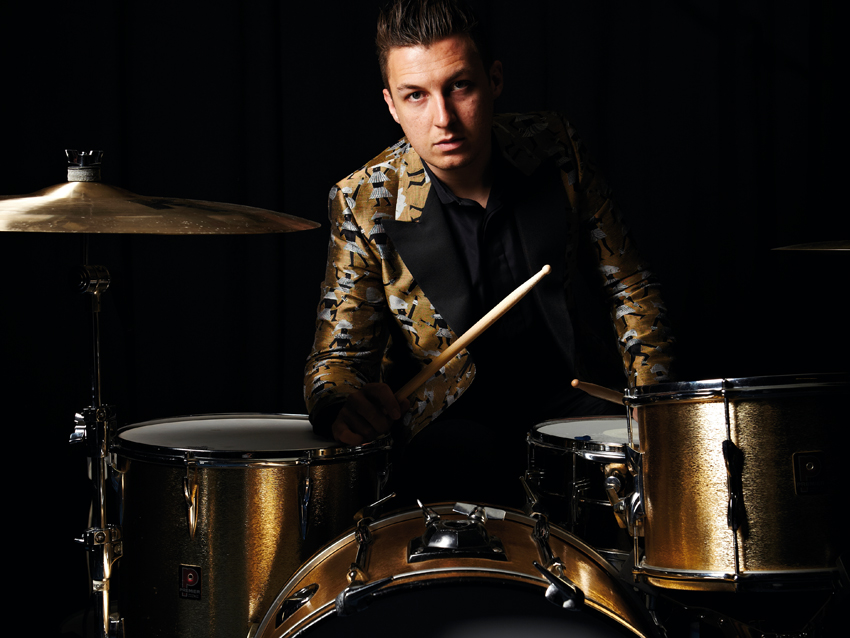
Matt Helders picks 10 essential drum albums
“The records I tend to like for the drumming aren’t always the typical ones that most people would pick," says Matt Helders, the irrepressible and charismatic man behind the kit for world-beaters the Arctic Monkeys. “For me, it’s not all about the flashy stuff and hearing some guy show off his chops. I’d rather listen to a drummer who knows how to play to the song."
It wasn't always that way, however: The famously self-taught player, who didn't even pick up a set of sticks until the Arctic Monkeys were forming (a fact made all the more remarkable when you consider his astonishingly fluid style), admits that when he was just starting out, the allure of virtuosity held sway over him.
"At first, I was really impressed with drummers doing thousands of fills and all the crazy technical stuff," he says. "But as I learned how to play, I began to realize that there’s more to drumming than just being the center of attention and going off; you have to be musical, as well."
Helders honed his rhythmic sensibilities (first formed as a DJ) by jamming to his favorite albums. "I’d put a whole record on and play along to it," he says. "I'd always find bits on different cuts that I’d pick up that weren’t on the single. I’d also play to rap albums because oftentimes I could play whatever I wanted; the pace was slower, and I could stretch out and groove without losing my place."
In the past few years, much has been written about the steady decline of album sales and the format's fading dominance as a cultural force. For his part, Helders sees the Arctic Monkeys as flag-waivers for the joys of the album experience. "We still, maybe in a naive way, make full-length records, hoping that people will sit down and listen to the whole thing from start to finish," he says. "But I know that I'm guilty of previewing things on iTunes and then buying stuff." He laughs, then adds, "I suppose that says something about modern music, as well."
On the following pages, Helders runs down his picks for 10 Essential Drum Albums. The Arctic Monkeys' new album, AM, is available at Amazon. For the band's current tour schedule, visit the official Arctic Monkeys website.
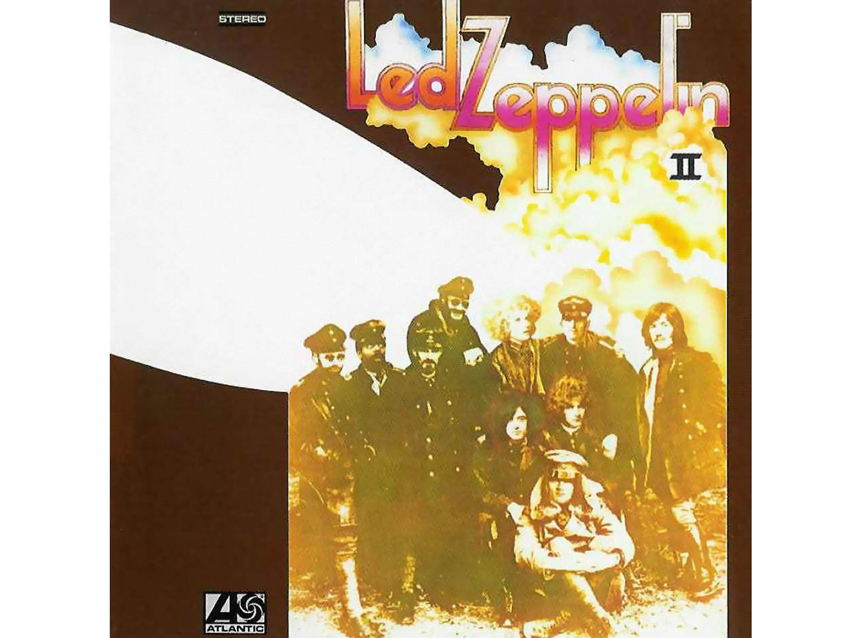
Led Zeppelin - Led Zeppelin II (1969)
“I’d have to say that John Bonham is my favorite drummer of all time. He’s somebody that I always come back to. The reason why I picked this record purely comes down to a fill he does at the end of the Moby Dick solo, before the band comes back in. It gives me chills, and that’s no exaggeration. I can hardly even express what it does to me. It’s perfect, absolutely perfect.
“I hadn’t been playing drums all that long when I heard it for the first time, and I thought, ‘It sounds unreachable to get to a standard like that.’ It’s not that it’s so difficult – a lot of people could learn to play it, and I’m sure they have. But the way that he executes it is just so unique – there's so much character to it.
“Half of the albums on this list could easily have been by Led Zeppelin, but I picked this one because, in addition to being incredible, there is that lick on Moby Dick. Sure, it’s part of a drum solo, and drummers love drum solos – well, not everybody; some people get bored of them, I guess. But there’s something special to that one moment where he comes out of the solo. It gets me every time."
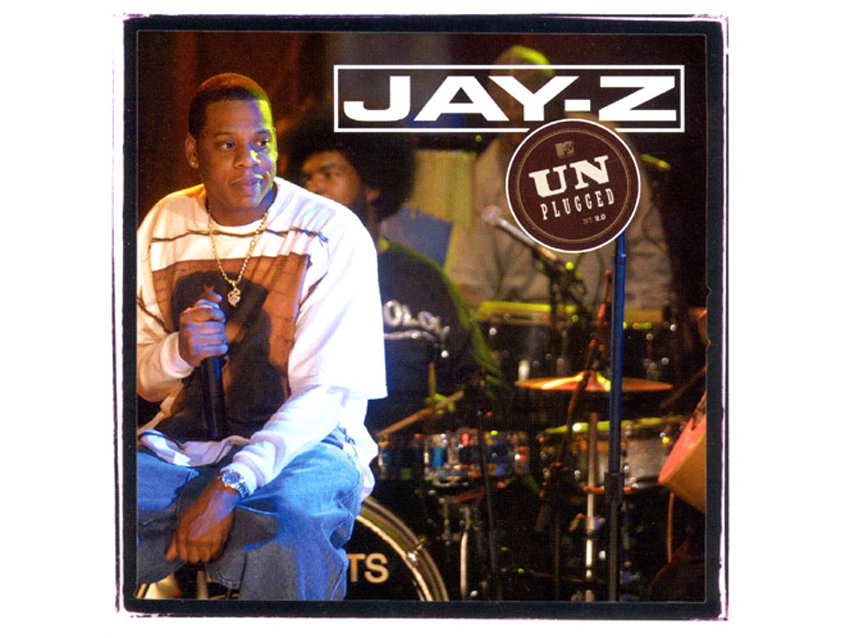
Jay-Z - Jay-Z: Unplugged (2001)
“This is the record of the MTV show that Jay-Z did with The Roots. I heard it before I even played the drums. I was a big Jay-Z fan, and I made a video of the shot from the TV; I remember recording it with the VCR.
“Even though I watched it loads and loads of times, I didn’t really understand at the time how a band worked and how they could make a live rap record sound so good. The Roots took Jay-Z’s songs from the record to the stage and did some incredible things with them.
“Questlove has always been a favorite of mine. I’ve revisited this record a lot of times. At first, I was a bit curious and surprised that he would want to sound so mechanical, like a human drum machine or something, but then I was really impressed that he could actually do such a thing. Not everybody can play a simple groove for three minutes with no variation and have it mean something. It sounds easy, but it's not."
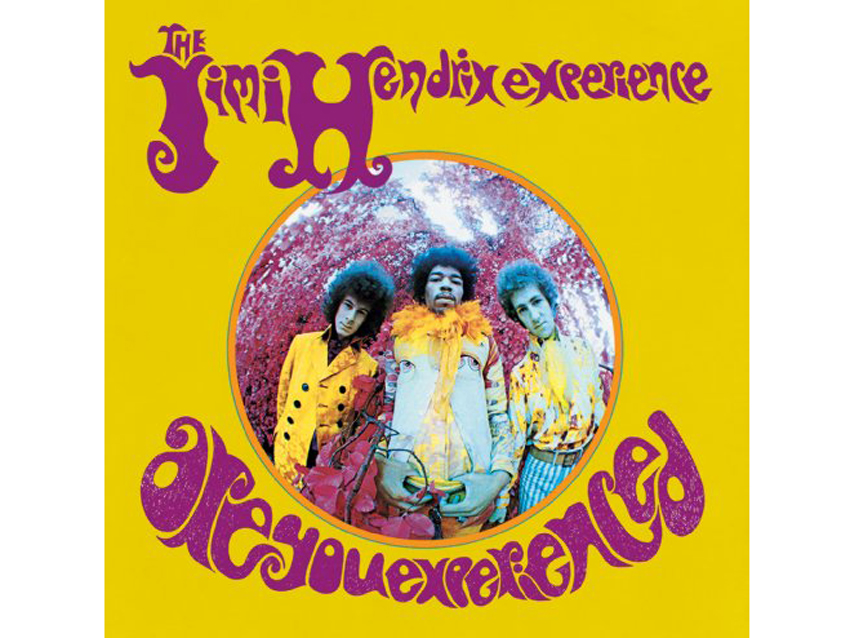
The Jimi Hendrix Experience - Are You Experienced (1967)
“When you get into drumming, Mitch Mitchell is one of those guys you start to look at. He’s so much fun to listen to and to watch on video. He was very loose, very free-form. I get the feeling that songs like Purple Haze and Fire were one-time only performances in the studio; he probably never played the songs the same way twice.
“There’s so much freedom and feeling in the way he executes certain fills. I imagine that’s why he worked so well with Jimi Hendrix – his music was all about spontaneity and being in the moment. You can probably never really learn to play like Mitch Mitchell, because he was always changing. I quite like that.”
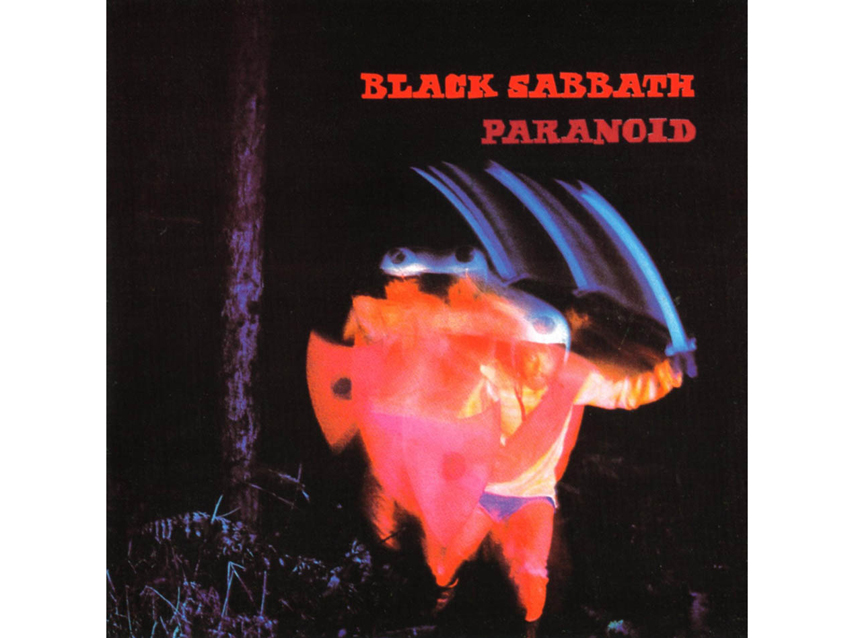
Black Sabbath - Paranoid (1970)
“There’s some very tasteful fills and long rolls in the songs on this album. We’ve been playing a section of War Pigs during one of our shows live, and I was really struck by the finesse it takes to play it just right. Hats off to Bill Ward.
“The rhythm section in general is pretty important to the overall sound and power of the music. It’s not just about being this wall of noise and heaviness all the time. There’s a lightness to what they do. There’s a jazz element going on, and that might be lost on a lot of people; they might not know why the music is so good, but they know that it sounds different from anything else they've heard."
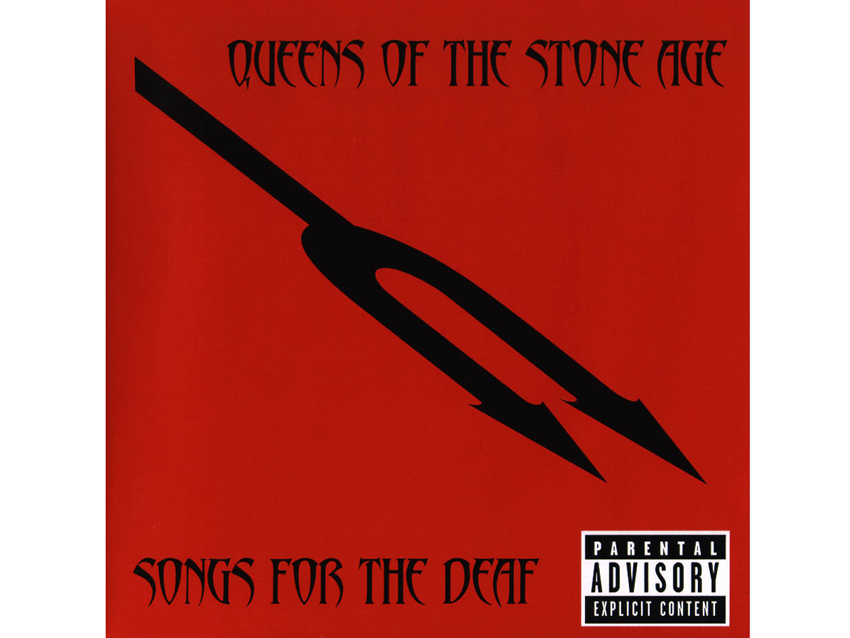
Queens Of The Stone Age - Songs For The Deaf (2002)
“It's hard to beat Dave Grohl, isn't it? He played on this record, and as usual, he’s just incredible. The relationship that he has with Josh is pretty important – they’ve done a lot of things together and know how to play off each other well. I mean, I know a lot of it is Josh – from working with him myself, I know that it’s his ideas – but Dave interprets the stuff and does his thing.
“Dave is a great drummer to listen to. He plays with a lot of taste and creativity, and even though he does so many records and projects, he’s always got a new fill that makes you go, ‘Oh, well, I haven’t thought of that.’ He does sort of a mini solo on A Song For The Dead that’s just fantastic. But you know, whatever he tries to do, he pulls it off beautifully.”
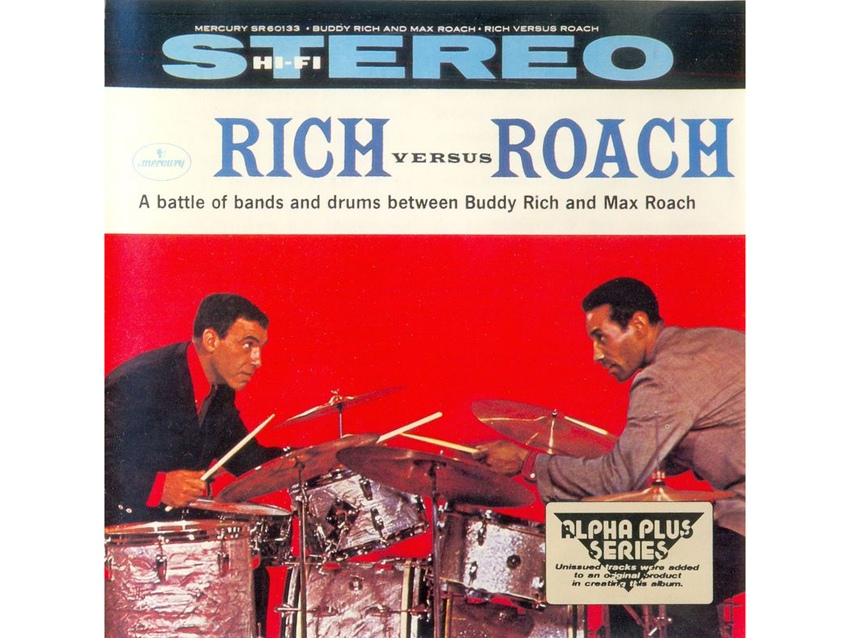
Buddy Rich/Max Roach - Rich Versus Roach (1959)
“Buddy Rich had his band, Max Roach had his band, and they panned one to the left and one to the right. They did it like a kind of battle in the studio and recorded it in stereo. When you listen to it on headphones, Buddy Rich’s band is in your left ear and Max’s band is in your right.
“They play the various big band songs that Buddy Rich would normally do, but there’s always a little drum battle going on; some of the musicians take solos and stuff. It’s pretty interesting to follow everything from the left to the right. The fact that somebody would think to make a record like this is really impressive.
“I’m a massive Buddy Rich fan. He’s probably the first drummer who, when I first saw him, made me say, ‘That’s what I want to do.’ Which is weird, because I don’t play anything like that – jazz and swing and big band. I stumbled across him playing on TV, and I’d never seen anything like what he was doing.”
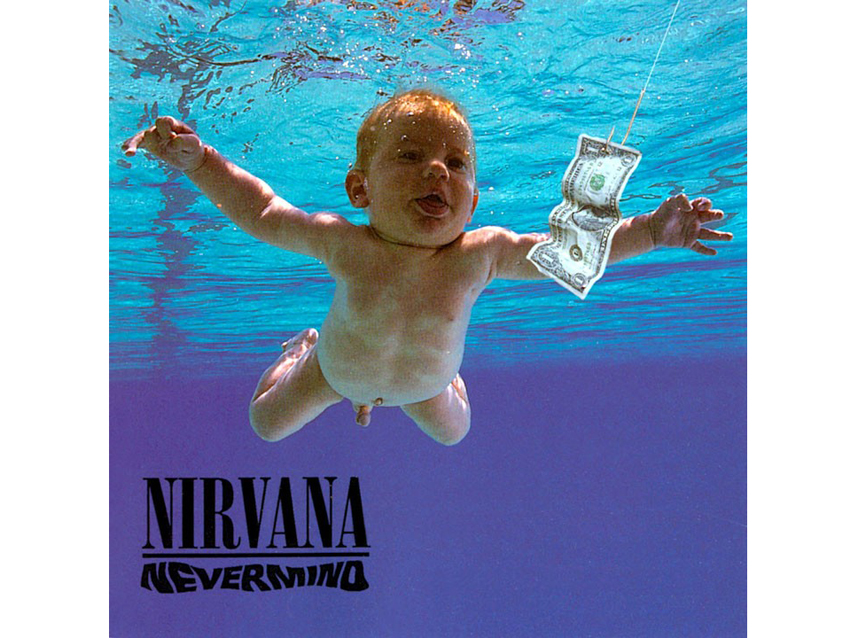
Nirvana - Nevermind (1991)
“Dave Grohl gets some more love from me. [Laughs] Back then, he probably played a bit simpler than what he did on the Queens Of The Stone Age record, so there’s a different style from the same guy.
“You can always do things in the studio to make a snare sound louder, your kick sound more powerful and all that, but he plays in such a way that you can still tell how much power he’s putting into it. But it’s not just about hitting hard with Dave: No matter how aggressive and raw he is, he’s still very musical. And, of course, the whole album is fantastic.”
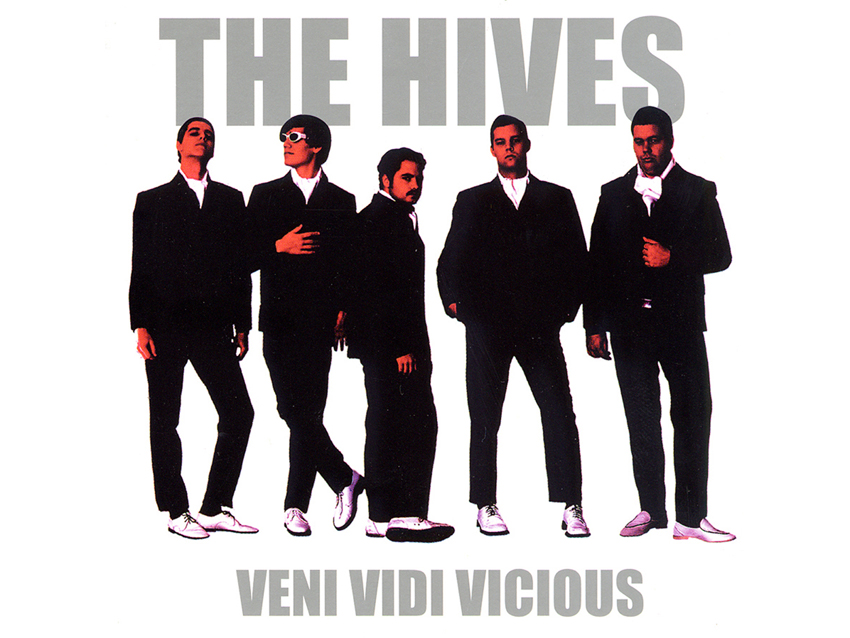
The Hives - Veni Vidi Vicious (2000)
“Chris Dangerous is an incredible drummer. He’s very fast – he's like a human metronome. When I started playing, he was one of the ‘new’ drummers I was into. At the time, we were listening to a lot of rap at school, but then bands like The Hives And The Strokes came along and sort of changed everything.
“I think Chris is the reason why my drum kit is set up the way it is. It’s weird to look up to a modern drummer like that, but I was really young and he impressed me – I wanted my drums to look like his.
“What I like about the record is how it sounds like they just went in, pressed ‘record’ and played everything as fast as they could. But it still sounds amazing. I love the band, and this album is one that I listened to a lot."
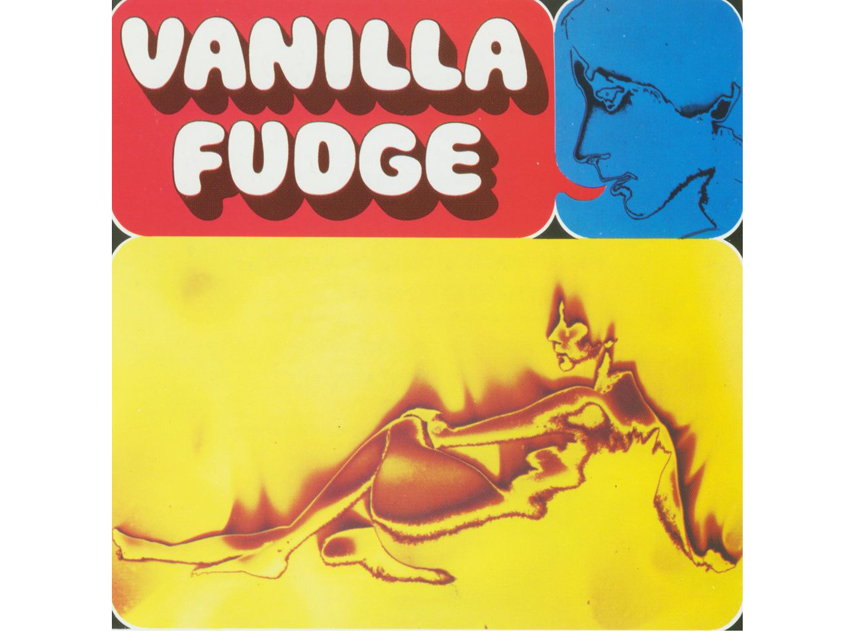
Vanilla Fudge - Vanilla Fudge (1967)
“I picked this one mainly for their version of You Keep Me Hangin’ On. The pace of it, the heaviness, the mood – I just always really liked it. It’s a very effective piece of music and a cool reinterpretation of the song.
“There’s a video of them playing it live in the studio, and Carmine Appice is doing all of these stick tricks but still nailin’ every lick perfectly. He looks amazing. As a drummer, I find that to be incredibly entertaining.
“The ‘60s and ‘70s must have been a hard time to try to stand out. Drummers probably set their kits up the same way; there was very little variation in how things were done. So anything you could do to be different was probably a real credit to your playing and how you approached things. Carmine definitely made you notice him, but he didn't take away from what the band were doing.”
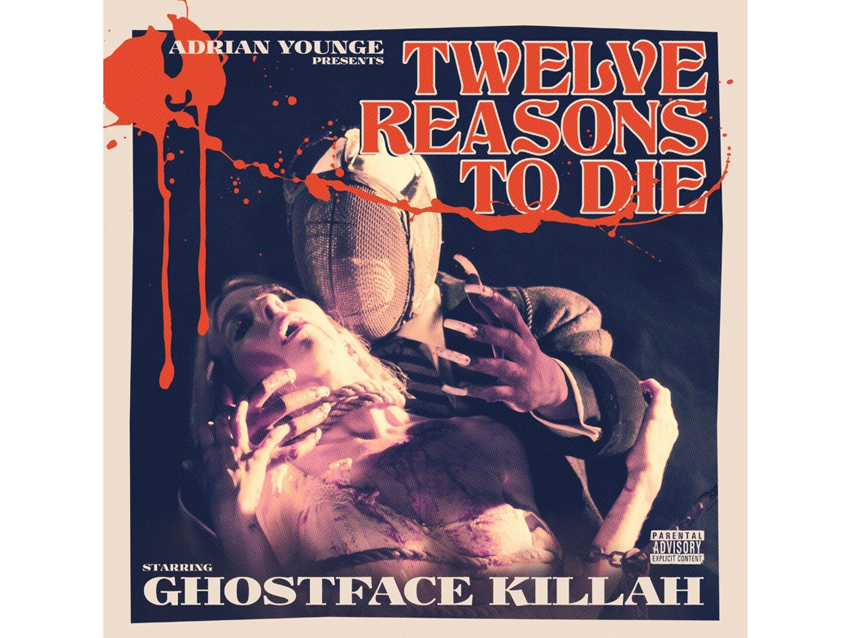
Ghostface Killah - Twelve Reasons To Die (2013)
“I don’t even know who drums on it, but it’s produced by Adrian Younge, and what’s great about it is, it’s not just beats; it’s very musical and soulful, all of it very grand sounding.
“This album is still very new, of course, but it already sounds like a classic. A lot of it is sampling, but I don’t think that’s a bad thing for drummers. There’s a reason why the drums on James Brown records get sampled – they work with the music. It’s good to know how samples and grooves can all work together. Everything feels right on this record.”

Joe is a freelance journalist who has, over the past few decades, interviewed hundreds of guitarists for Guitar World, Guitar Player, MusicRadar and Classic Rock. He is also a former editor of Guitar World, contributing writer for Guitar Aficionado and VP of A&R for Island Records. He’s an enthusiastic guitarist, but he’s nowhere near the likes of the people he interviews. Surprisingly, his skills are more suited to the drums. If you need a drummer for your Beatles tribute band, look him up.
"At first the tension was unbelievable. Johnny was really cold, Dee Dee was OK but Joey was a sweetheart": The story of the Ramones' recording of Baby I Love You
"Reggae is more freeform than the blues. But more important, reggae is for everyone": Bob Marley and the Wailers' Catch a Fire, track-by-track
"At first the tension was unbelievable. Johnny was really cold, Dee Dee was OK but Joey was a sweetheart": The story of the Ramones' recording of Baby I Love You
"Reggae is more freeform than the blues. But more important, reggae is for everyone": Bob Marley and the Wailers' Catch a Fire, track-by-track









